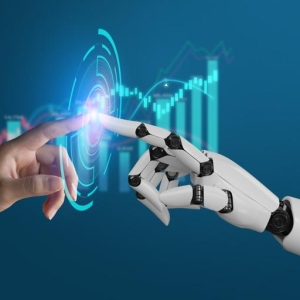The comprehensive Digital Transformation In Healthcare Market Forecast paints a compelling picture of a future characterized by sustained, rapid, and transformative growth. Projections consistently indicate a strong double-digit compound annual growth rate (CAGR) over the next decade, signaling that the industry is still in the relatively early stages of a profound, long-term secular shift. The forecast is not just about the expansion of existing technologies but anticipates the emergence and scaling of new paradigms of care delivery. A central pillar of this future growth is the continued evolution towards precision medicine. The forecast predicts a massive increase in the integration of genomic and multi-omic data into routine clinical care. Digital platforms that can analyze this complex biological data alongside clinical and lifestyle information will become standard tools for predicting disease risk, selecting the most effective treatments, and personalizing therapies for each individual patient. This will transform the practice of medicine from a population-based approach to a highly individualized one, creating a massive new market for genomic analytics, clinical decision support tools, and targeted digital therapeutics.
A second key element of the forecast is the rise of the "smart hospital" and the full realization of the "Internet of Medical Things" (IoMT). The future hospital will be a deeply connected environment where nearly every device, from infusion pumps and ventilators to patient beds and staff badges, is networked and generating data. The forecast anticipates huge investment in real-time location systems (RTLS) to track assets and optimize workflows, automated robotic systems for tasks like lab sample transport and disinfection, and centralized command centers that use AI to monitor all aspects of hospital operations in real-time. This will create an intelligent, self-optimizing environment that improves patient safety and operational efficiency. Extending beyond the hospital walls, the forecast points to the "hospital-at-home" model becoming a mainstream care delivery option. Fueled by advances in remote monitoring technology and favorable reimbursement policies, a significant portion of care that is currently delivered in an inpatient setting will shift to the patient's home, creating a massive market for the technologies and services that enable this new, decentralized model of acute and post-acute care.
Looking further ahead, the long-term forecast envisions a future of proactive, predictive, and "invisible" healthcare. The proliferation of ambient sensors in our homes, cars, and wearables will create a continuous stream of health-related data that can be analyzed by AI to detect subtle deviations from a person's baseline health long before they are aware of any symptoms. The forecast suggests the emergence of personal health AI agents that will act as a constant wellness companion, providing personalized nudges, coaching, and early warnings. This will shift the focus of the healthcare system dramatically, from treating acute illness to preventing it and maintaining wellness. The realization of this vision is contingent on navigating significant ethical and privacy challenges, but it represents the ultimate promise of digital transformation. The forecast also predicts that major technology companies will play an increasingly direct role in healthcare delivery, leveraging their vast consumer ecosystems, data analytics capabilities, and AI research to create new, vertically integrated health services that could fundamentally disrupt the traditional provider and payer landscape.




